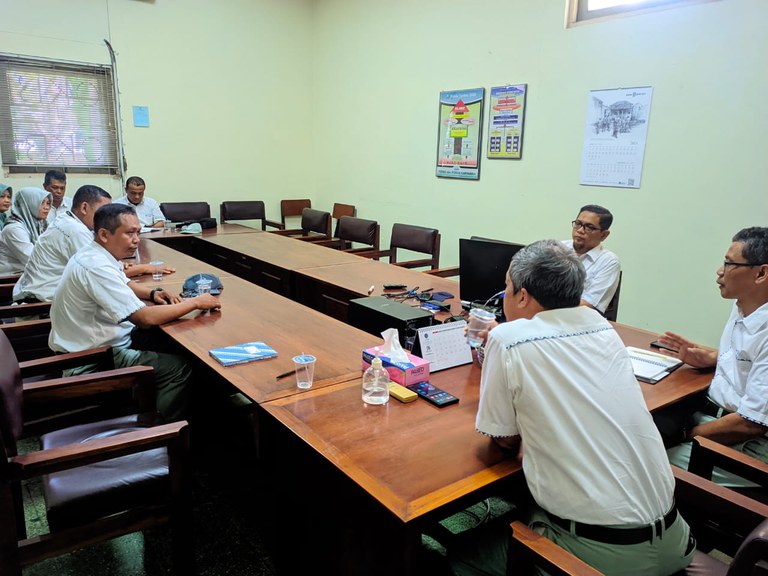Latifa (not her real name), a machine operator at Pabrik Cambric Gabungan Koperasi Batik Indonesia in Yogyakarta (PC GKBI), works from 8 AM to 4 PM. During her shifts, she faced a challenge common to many of her female colleagues - finding a safe and comfortable space to pump her breast milk during the working day.
Despite legal requirements for the same, her workplace lacked dedicated rooms for this purpose. Latifa was forced to use her personal equipment in the thread testing room or the restroom - both of which were unsafe and unhygienic. The absence of refrigeration facilities meant they often had to discard their milk because it spoiled.
Irwan, the Chairman of Serikat Pekerja Nasional (SPN) at PC GKB, knew that these weren’t new issues in the factory. The company, which produces yarn, grey fabric, and cambric fabric, employed 800 workers, 30% of whom are women. He and other union members had observed these problems, but couldn’t find a clear solution.
Data from the Makin Terang programme, managed by Gajimu (WageIndicator) across 249 factories in 2022-2023, shows the scale of these concerns: a lack of lactation facilities were the 2nd-most noted issues in our DecentWorkCheck Survey, behind the overuse of fixed-term contracts instead of permanent contracts.
Campaigns by other organisations and trade unions also highlighted the importance of providing lactation rooms, observing that in addition to benefiting the health of the child and allowing women to continue working, such initiatives also reduced absenteeism among working mothers, which benefited the employers as well. In an industry primarily staffed by female workers, the cumulative effects of such decisions cannot be underestimated.
In November 2023, Irwan and a colleague attended a workshop on drafting Collective Bargaining Agreements organised by the Makin Terang program. The training focussed on gender-sensitive issues in negotiation, particularly maternity rights. Our trainers shared this information with them, preparing them for negotiations with factory management.
Following the training, Irwan and other union members organised a meeting with the factory directors and management. Armed with the “ammunition” from the data collection and the training, they felt more confident in pushing for a lactation room to be set up. This need was further highlighted when they saw Latifa anxiously wandering around the factory with her equipment in hand, searching for a convenient place to pump.
The negotiation eventually took place in July 2024. Six SPN leaders (two women and four men) met with factory management, who were unaware they were legally obligated to provide for lactation rooms. Irwan and his team shared the relevant guidelines with them, along with the data from the DecentWorkCheck survey. The factory management was convinced and agreed to their demands. These provisions are set to be codified in the upcoming Collective Bargaining Agreement that the union will strike with the management.
Reflecting on this success, Irwan and his team realised they had become more attuned to issues previously considered less important. Not just here, but in most workplaces this fate is specific to female employees, whose issues are forgotten or overlooked given that union and factory leadership tends to be male-dominated.
Irwan and his team, though, feel empowered and dedicated to carry forward this momentum. Using this data is “like going into battle fully armed,” he said. Their next battlefield? Negotiating easier access to menstrual leave for female workers.
The Makin Terang Programme is a joint collaboration between four biggest trade union in Indonesia’s garment industry. The programme is coordinated by Gajimu/WageIndicator, Trade Union Rights Centre (TURC), and Mondiaal FNV, and funded by Laudes Foundation. Gajimu and WageIndicator play a crucial role in collecting, managing, analysing, and publishing data collected through DecentWorkChecks which can be used by multiple stakeholders to improve awareness on rights and strengthen negotiations and dialogues.
Other than an established survey such as DecentWorkCheck survey, Makin Terang also works with the “WorkerPriorityPoll”(WPP) which aims to pull-out priorities on specific topics for an underrepresented group of workers.
Photo: The negotiation meeting between the SPN officials and the GKBI management

Subscribe to our Decent Work newsletter to get the latest update!
